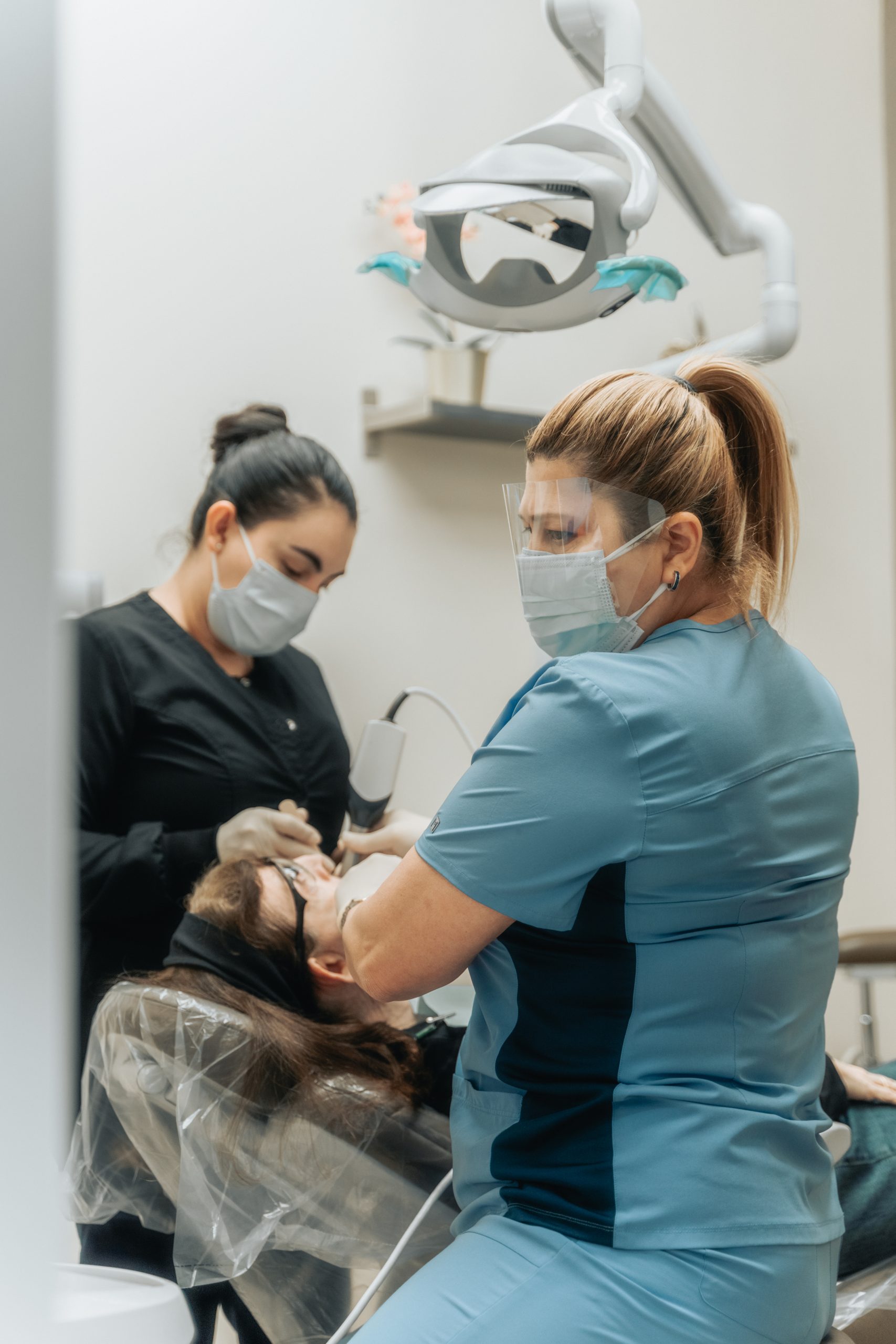An Overview to Usual Dental Problems That Require a Dental expert's Care
Toothaches, for example, can be symptomatic of severe concerns such as tooth cavities, split teeth, or abscesses, each calling for certain interventions like fillings or root canals. Influenced wisdom teeth and jaw conditions can introduce significant pain and issues.
Toothaches
Toothaches are a typical dental condition that can vary from moderate discomfort to severe pain, commonly indicating an underlying concern that calls for expert attention. This discomfort can stem from a range of resources, consisting of dental tooth cavities, broken or fractured teeth, and oral abscesses. Each of these problems presents considerable risks if left untreated, possibly causing more extreme problems.
Dental cavities, also referred to as caries, are caused by the buildup of plaque that wears down tooth enamel, causing openings or pits in the affected teeth (dentist eugene or). Cracked or fractured teeth, on the other hand, might result from trauma, grinding, or biting into hard things. These architectural problems can expose the sensitive internal layers of the tooth, creating pain and raising the danger of infection. Abscesses are agonizing infections at the origin of a tooth or in between a tooth and the gum, typically resulting from serious decay or unattended cavities.
Reliable therapy of toothaches involves resolving the origin. This might include dental fillings for tooth cavities, crowns for broken teeth, or origin canals and prescription antibiotics for abscesses. Very early intervention by an oral expert can avoid additional damage and minimize discomfort, guaranteeing ideal dental health.
Gum Tissue Condition
Periodontal disease, a widespread yet usually ignored dental condition, shows up through swelling and infection of the gums and supporting tissues. This problem primarily happens in 2 stages: gingivitis and periodontitis. Gingivitis, the milder kind, presents with signs such as red, inflamed gum tissues that might bleed quickly throughout cleaning or flossing. If left neglected, gingivitis can proceed to periodontitis, an extra severe form defined by the damage of the sustaining bone and connective cells, ultimately causing missing teeth.
The key source of gum disease is bacterial plaque, a sticky, anemic movie that frequently creates on teeth. Poor dental health, smoking cigarettes, genetic predisposition, and specific clinical conditions, such as diabetes, can intensify the threat of developing gum disease. Regular dental examinations are critical for very early discovery and monitoring of this condition.
Therapy for gum tissue illness varies from specialist oral cleansing and scaling to more sophisticated procedures like root planing and periodontal surgical treatment, relying on the seriousness. Keeping excellent dental hygiene practices, including cleaning two times daily, flossing, and utilizing an antiseptic mouth wash, can significantly reduce the threat of gum tissue illness and promote much healthier gum tissues.
Tooth Cavities
Cavities, also called oral decays, are an usual oral problem identified by the destruction of tooth enamel because of acid-producing bacteria in the mouth. These bacteria thrive on sugars and starches from food and drinks, producing acids that progressively wear down the enamel, resulting in dental caries formation.
Early-stage dental caries may not show signs and symptoms, but as they advance, they can trigger toothache, level of sensitivity to cool or hot, noticeable openings or pits in the teeth, and staining. If left untreated, tooth cavities can pass through deeper layers of the tooth, potentially leading to extreme discomfort, infection, and even missing teeth.
Avoiding tooth cavities entails a combination of good oral health practices and dietary behaviors. Regular brushing with fluoride toothpaste, flossing, and routine dental examinations are important. Dental experts may also suggest extra safety nets, such as fluoride therapies and oral sealers, to secure teeth from degeneration.
Minor dental caries can be resolved with dental fillings, which recover the tooth's framework. Much more innovative cases may need crowns find more or also root canal therapy if the degeneration has actually reached the tooth's pulp.

Impacted Knowledge Teeth
Impacted knowledge teeth are a common oral issue that happens when the 3rd molars, commonly referred to as wisdom teeth, stop working to totally emerge or straighten properly within the mouth. This condition often results from not enough room in the jaw or an irregular development angle of the teeth. Influenced wisdom teeth can result in a range of difficulties, including discomfort, damages, and infection to surrounding teeth.
When wisdom teeth come to be influenced, they are frequently partially appeared or stay totally beneath the periodontal line. This partial eruption can create a path for bacteria to go into the gum tissues, resulting in infections that show up as swelling, pain, and also fever. In addition, affected knowledge teeth can put in stress on neighboring teeth, possibly creating crowding or shifting.
A thorough dental exam, this contact form generally involving X-rays, is important for diagnosing influenced knowledge teeth. Routine oral check-ups are suggested to keep track of the problem and preserve dental health.
Jaw Disorders
Jaw conditions, collectively referred to as temporomandibular joint (TMJ) conditions, incorporate a variety of problems that affect the jaw joint and surrounding muscular tissues. These problems can materialize via symptoms such as pain or inflammation in the jaw, problem chewing, a standing out or clicking audio when closing the mouth or opening up, and even persistent frustrations. TMJ problems can occur from various elements, consisting of arthritis, jaw injury, or regular actions like teeth grinding or jaw clenching.
Diagnosis of TMJ disorders usually entails a thorough analysis by a dental professional, including a physical evaluation of the jaw, dental X-rays, and in some cases advanced imaging techniques like MRI or CT scans to examine the joint's problem. Non-invasive strategies such as physical treatment, oral splints, and medications aimed at minimizing inflammation and pain are typically first-line therapies.
Early intervention by an oral expert is vital to avoid the development of TMJ problems and to keep general oral health. Patients experiencing relentless jaw discomfort or dysfunction ought to look for punctual examination and treatment.
Final Thought
Toothaches usually show underlying problems such as dental caries, cracked teeth, or abscesses, requiring prompt intervention. Impacted wisdom teeth and jaw problems likewise need specialist interest to relieve discomfort and prevent further difficulties.
Oral dental caries, likewise understood as caries, are created by the accumulation of plaque that deteriorates tooth enamel, leading to holes or pits in the affected teeth. Abscesses are painful infections at the origin of a tooth or between the gum and a tooth, typically resulting from severe degeneration or unattended cavities.

Additionally, impacted knowledge teeth can apply pressure on surrounding teeth, potentially triggering crowding or shifting.
Comments on “Professional Tips for Choosing the Right Dentists Eugene for Your Dental Wellness”